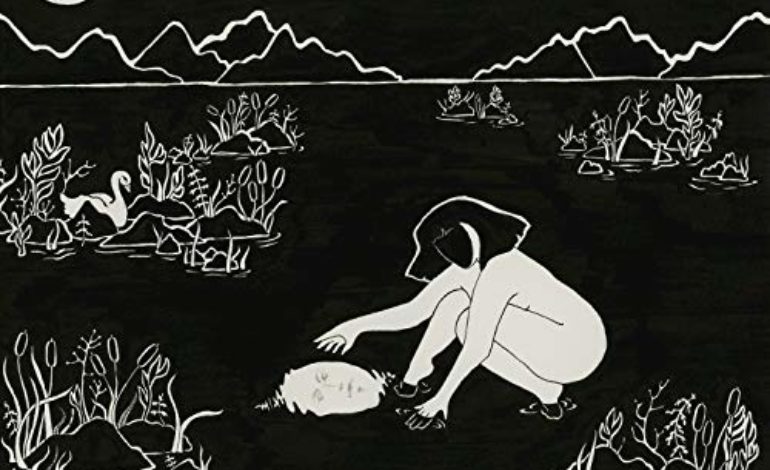

Poetry at an eighth grade level
Gabby’s World is a musical project spearheaded by Brooklyn singer-songwriter and producer Gabrielle Smith. Smith started out solo about a decade ago, making experimental ambient music inspired by the DIY scene in New York City, before eventually forming the current indie pop band lineup.
The music on this album is indie pop rock with girlish lead vocals and a pinch of melancholy. Vocals lead the way, with guitars, bass, drums and keyboards parading behind. The instrumental performances have spirit and energy; the guitars are crunchy, the drums are punchy and the vocals have a touch of lo-fi.
Smith is a very capable songwriter–she really knows how to make the hooks pop while keeping the verses interesting as well. The instrumentation is dynamic, and the melodies are hummable. Smith also knows how to build instrumentation on a track. The opening track “Winter, Withdraw” starts contemplatively with vocals and some soft flourishes of keyboards and guitar. Tension builds when the bass guitar starts chugging, and then the song explodes into fireworks; the full band instrumentation comes in, and the vocal melody soars over all of it. The track is full of highs and lows, a testament to Smith’s abilities to craft a song.
Not every song is a head-bobber. After the upbeat “I Get You” comes the pensive title track, whose foundation is a twinkling guitar and bass pattern, with some synths and pat-pat drum hits coloring the nocturnal atmosphere as the track moves along. The versatility of the instrumentation is vital to the record, as they help to make up for the many limitations of Smith’s vocals.
To be specific, there is a disconnect between the vocals and the instrumentation. First, Smith’s voice is devoid of spirit and energy much of the time. Second, she barely does the minimum of singing the notes, since she strains and weakens in the upper range. Perhaps the most damning of all, Smith sounds sweet and innocent like a teenager getting it on for the first time, but the upbeat, head-bobbing instrumentation demands something more mature or in-your-face.
The album’s lyrics are about growing up, finding your own way in the world, and womanhood. Like the vocals, however, the lyrics sound short-sighted and immature. At their best, the lyrics provide cool imagery, such as the imagery of beasts stacked on top of beasts, slowly sinking into the ground on the title track. At their worst, listening to the album is like watching an eighth grader’s poetry recital at the school talent show. Taylor Swift sang about “T-shirts and dresses” ten years ago, and at least she was a little tongue-in-cheek about it.
Smith waxes poetic but ends up cramming in too many words. The end goal of pop music is to worm its way into your head and stay there. Since listeners only have a limited amount of attention span and memory space, this goal is best managed with fewer words. This is why on “Billie Jean,” Michael Jackson simply sings “For forty days and forty nights, the law was on her side,” and not a long flowery reenactment of the trial over the paternity lawsuit. While it is not impossible to alter the paradigm, Smith is not yet skilled enough to do so.
Finally, Smith does not match her lyrical phrases to her musical phrases, so the words do not flow naturally. The listener constantly has to wait for the next musical phrase before a lyrical idea is finished. Combined with Smith’s flat delivery, this makes understanding the point of Smith’s songs nearly impossible. Smith delivers her lyrics, but not the message.
